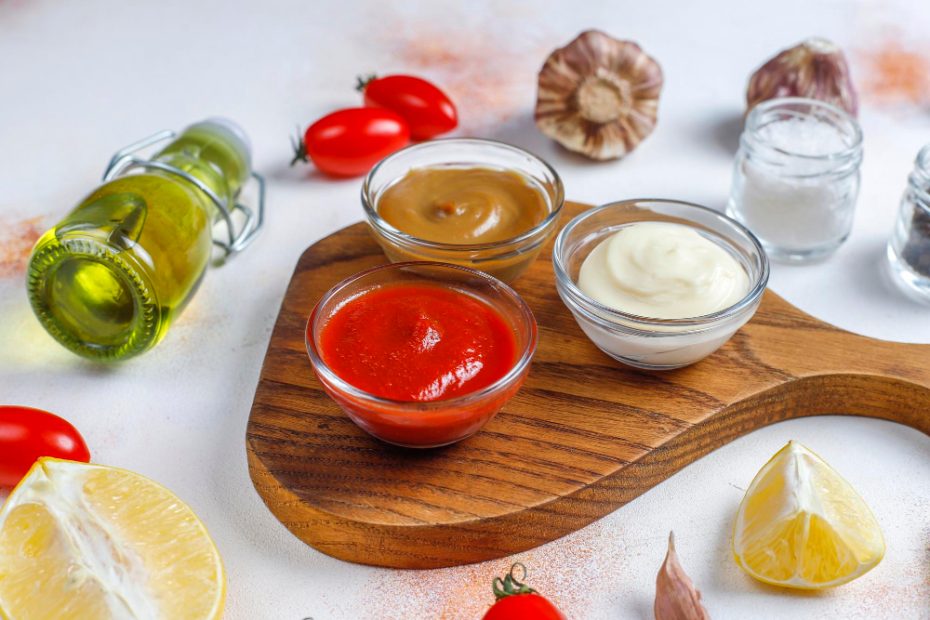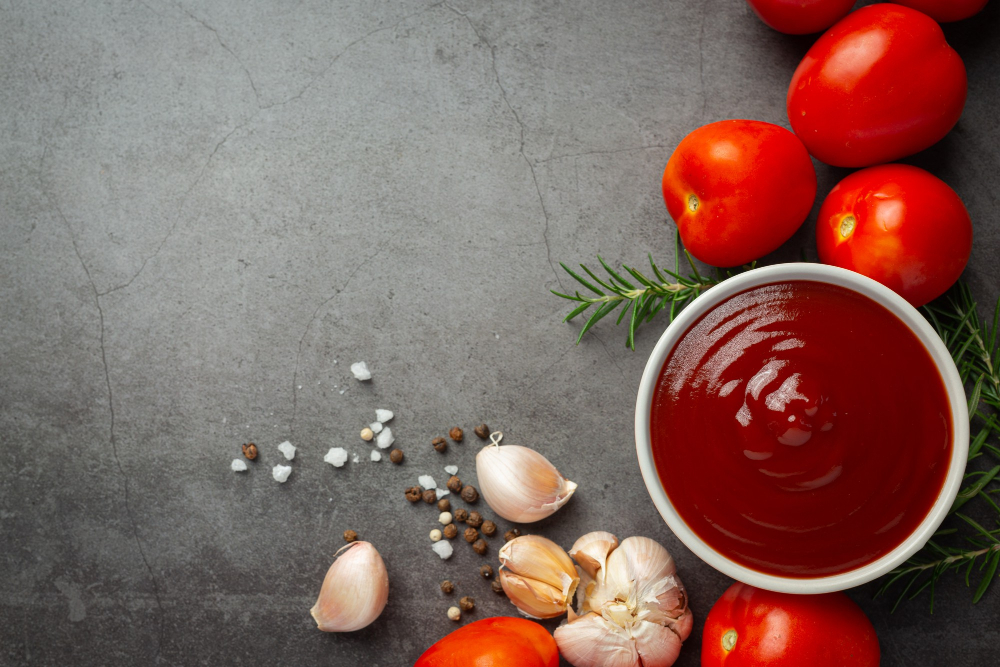How long should you marinate meat?
Marinating meat is a popular technique used to enhance the flavor and tenderness of various cuts. Whether you’re grilling, roasting, or sautéing, marinating can transform an ordinary piece of meat into a mouthwatering dish. But how long should you marinate your meat? In this article, we’ll explore the factors that influence marination time and provide some general guidelines for marinating different types of meat.
The importance of marinating
Marinating meat involves soaking it in a flavorful mixture of herbs, spices, oils, and acids, such as vinegar or citrus juices. This process not only adds flavor but also helps to tenderize tougher cuts of meat. The acidic components in the marinade break down the connective tissues, making the meat more tender and juicy. Additionally, the herbs and spices infuse the meat with their unique flavors, enhancing the overall taste profile.
Factors affecting marination time
The ideal marination time depends on several factors, including the type and thickness of the meat, the ingredients in the marinade, and personal preference. Thinner cuts like chicken breasts or fish fillets generally require less time to marinate compared to thicker cuts like steaks or roasts. The type of marinade also plays a role, as stronger or more acidic marinades may require shorter marination times to avoid overpowering the meat’s natural flavors.
General guidelines for marinating meat
While marination times can vary, here are some general guidelines to follow:
– Poultry: Chicken and turkey can be marinated for 1 to 24 hours. Boneless, skinless cuts tend to absorb flavors more quickly than whole birds or pieces with bones and skin.
– Beef: Steaks and roasts can be marinated for 15 minutes to 24 hours, depending on their thickness and desired flavor intensity. Thicker cuts benefit from longer marination times, while thinner cuts like sirloin or flank steak can be adequately flavored in a shorter period.
– Pork: Similar to beef, pork can be marinated for 15 minutes to 24 hours. Thicker cuts like pork chops may require longer marination times.
– Seafood: Fish and shellfish are generally more delicate and absorb flavors quickly. Marinating seafood for 15 minutes to 2 hours should be sufficient to impart flavors without overpowering the natural taste.
Marinating tips
To ensure successful marination, consider the following tips:
- Always marinate meat in the refrigerator to prevent bacterial growth.
- Use non-reactive containers like glass or food-safe plastic bags for marinating. Avoid using aluminum or copper vessels as they can react with acidic marinades.
- Reserve a portion of the marinade for brushing or basting during cooking, especially if you’re grilling.
- Discard any leftover marinade that has come into contact with raw meat to avoid cross-contamination. If you want to use the marinade for sauce or dipping, make sure to bring it to a boil first to kill any bacteria.
“Marinating meat is an art that requires experimentation and personal preference. Don’t be afraid to try different combinations of flavors and adjust the marination time to suit your taste.”
In conclusion, marinating meat can greatly enhance its flavor and tenderness. The ideal marination time varies depending on the type of meat, thickness, and desired flavor intensity. By following some general guidelines and considering personal preferences, you can create delicious, marinated dishes that are sure to impress. So why not take your cooking skills to the next level and begin experimenting with different marinades today?
Is 30 minutes long enough to marinate?
Marinating is a great way to infuse flavors into your meat, making it more tender and delicious. But how long should you marinate your meat for? Many recipes suggest marinating for several hours or even overnight, but is 30 minutes long enough to marinate?
Why marinate?
Marinades are typically made from a combination of acidic ingredients like vinegar or lemon juice, oil, and seasonings. When you marinate meat, the acidity helps to break down the proteins, making it more tender. The oil in the marinade helps to keep the meat moist and adds flavor, while the seasonings enhance the overall taste.
Short marinating times
While longer marinating times can certainly provide more intense flavors, marinating for just 30 minutes can still be beneficial. According to experts, the acid in the marinade begins to work its magic as soon as it comes into contact with the meat. Even in this short time, the meat can absorb some of the flavors from the marinade.
“Even a short marinating time can enhance the taste and tenderness of your meat.”
If you’re short on time or simply forgot to marinate ahead, don’t worry! You can still achieve great results with a shorter marinating time.
Maximizing flavor in 30 minutes
If you’re pressed for time, there are a few tricks you can use to maximize the flavor in just 30 minutes:
- Pierce the meat with a fork before marinating to help the flavors penetrate deeper.
- Use a marinade with bold flavors, such as soy sauce, garlic, and herbs, to ensure a more pronounced taste.
- Flip the meat halfway through the marinating time to ensure even distribution of flavors.
How long does it take to marinate for BBQ?
Marinating meat is an essential step in preparing a delicious barbecue. It not only enhances the flavor but also helps to tenderize the meat. The marinating time can vary depending on the type of meat and the marinade used. Here’s a guide on how long to marinate different meats:
Beef:
For beef cuts such as steaks and roasts, it is recommended to marinate them for at least 30 minutes to 24 hours. The longer the marinating time, the more intense the flavor will be. If you have a tougher cut of beef, consider marinating it for a longer period to help break down its fibers and make it more tender.
Chicken:
Chicken pieces or whole chickens should be marinated for a minimum of 2 hours and up to 24 hours. Chicken tends to absorb flavors quickly, so even a shorter marinating time can result in a flavorful dish. Make sure to refrigerate the chicken while it marinates to prevent bacterial growth.
Pork:
Pork, similar to beef, benefits from a longer marinating time. Marinate pork chops, tenderloins, or roasts for at least 2 hours and up to 24 hours. The acid in the marinade helps to tenderize the meat and infuse it with flavor.
Seafood:
Seafood such as shrimp, fish, or scallops require a shorter marinating time compared to other meats. Marinating seafood for 15 minutes to 2 hours is sufficient to enhance its taste. Be cautious not to over-marinate seafood as it can become mushy and lose its texture.
Remember, marinating times are just guidelines and can be adjusted to suit your taste preferences. It’s always best to follow the recipe instructions or experiment with different marinating times to find what works best for you.
To help you keep track of marinating times, here’s a table summarizing the suggested marinating durations for different meats:
| Meat | Suggested Marinating Time |
|---|---|
| Beef | 30 minutes to 24 hours |
| Chicken | 2 hours to 24 hours |
| Pork | 2 hours to 24 hours |
| Seafood | 15 minutes to 2 hours |
Additionally, it’s important to note that the surface of the meat should be patted dry before grilling to promote better browning. Happy marinating and enjoy your barbecue!
Is marinating for 3 hours enough?
The Importance of Marinating
Marinating is a popular technique used in cooking to enhance the flavor and tenderness of meat, fish, or vegetables. It involves soaking the food in a mixture of oils, acids, herbs, and spices, allowing the flavors to penetrate and infuse the ingredients. While marinating can significantly improve the taste of your dishes, the duration of marination plays a crucial role in achieving the desired results.
The Role of Time in Marinating
When it comes to marinating, time is an essential factor to consider. The longer you marinate, the more time the flavors have to develop and seep into the food. However, marinating for too long can lead to over-marination, resulting in a mushy texture and an overpowering taste. So, what about marinating for just 3 hours?
Short Marination: Pros and Cons
Marinating for 3 hours can still offer some benefits. It allows enough time for the flavors to begin permeating the outer layers of the food, adding depth and enhancing the taste. Additionally, shorter marination times are suitable when using more acidic marinades, such as lemon or lime juice, as they can tenderize the proteins faster.
However, it’s important to note that with a shorter marination period, the flavors may not fully penetrate the entire dish. The interior may remain relatively unaffected, resulting in less flavorful bites. If you’re using tougher cuts of meat, like beef brisket or pork shoulder, 3 hours might not be sufficient to break down the connective tissues and achieve optimal tenderness.
Expert Tip: To maximize flavor and tenderness, consider marinating overnight or for at least 6-12 hours. This is especially recommended for larger cuts or tougher meats.
Ensuring Proper Marination
To ensure effective marination, follow these tips:
- Use a zip-lock bag: Place the food and marinade in a sealable bag to ensure maximum contact and easy flipping during marination.
- Refrigerate: Always marinate in the refrigerator, as higher temperatures can promote bacterial growth.
- Flip and massage: Flip the bag occasionally to distribute the marinade evenly. Massaging the food gently can also help enhance absorption.
- Don’t reuse marinade: Using the same marinade for basting or sauce after raw meat has been marinated in it can lead to cross-contamination. Prepare a fresh batch if needed.
In Conclusion
While marinating for 3 hours can still yield some flavor enhancement, longer marination times are generally recommended for more tender and flavorful results. Experiment with different marinating durations to achieve the desired taste and texture. Remember, proper marination techniques, such as using the right ingredients and refrigeration, are vital for food safety. So, give your dishes the time they need to shine and enjoy the delicious results!
Does Marinating Overnight Make a Difference?
Marinating is a common technique used to enhance the flavor and tenderness of meat and fish before cooking. Many recipes suggest marinating for a certain amount of time, with some even recommending overnight marination. But does marinating overnight really make a difference? Let’s explore the science behind it.
How Marinating Works
Marinating involves soaking the food in a mixture of liquids (such as vinegar, oil, or citrus juice) and spices to infuse flavors and potentially tenderize the protein. The duration of marination allows the marinade to penetrate the surface and break down the connective tissues, resulting in a more tender and flavorful dish.
The Overnight Advantage
While marinating for a shorter period can still impart some flavor, marinating overnight offers several advantages. Firstly, the extended time allows the marinade to fully permeate the meat, ensuring a deeper flavor throughout. It also gives the acid in the marinade more time to work on breaking down the proteins, resulting in a more tender texture.
Scientific Studies
Several scientific studies have explored the effects of marinating duration on the final dish. One study conducted at the University of California found that marinating chicken breasts overnight led to a 79% reduction in formation of harmful compounds when cooked at high temperatures, compared to no marination or short marination periods. This suggests that marinating overnight not only enhances flavor but also has potential health benefits.
“Marinating overnight allows the flavors to fully develop and results in a more tender and delicious meal.”
Marinating Tips
To make the most out of your marinating experience, here are a few tips:
- Ensure the meat is fully submerged in the marinade to maximize flavor penetration.
- Use an airtight container or sealable bag to prevent leaks and maintain freshness.
- Don’t marinate delicate seafood for too long, as the acid can start cooking the proteins, resulting in a mushy texture.
- Experiment with different marinade recipes and ingredients to discover your favorite combinations.
In Conclusion
Marinating overnight makes a significant difference in terms of flavor and tenderness. It allows the marinade to fully penetrate the meat, resulting in a more flavorful and tender dish. Scientific studies also suggest that marinating overnight may have health benefits by reducing harmful compounds during cooking. So next time you’re preparing a meal, consider marinating your ingredients overnight for the best results.
How long can you leave raw meat in a marinade?
Marinating is a popular technique used to enhance the flavor and tenderness of meat before cooking. Whether you’re preparing a steak, chicken breast, or even fish, marinating can add a delicious twist to your dishes. But how long is too long to leave raw meat in a marinade? Let’s explore the guidelines for marinating meat to ensure food safety and optimal taste.
Food Safety Considerations
When it comes to marinating raw meat, it’s important to prioritize food safety. The general rule of thumb is to marinate poultry and seafood for no longer than 24 hours, while beef, lamb, and pork can be marinated for up to 48 hours. Leaving meat in a marinade for too long can lead to the breakdown of proteins and potentially cause foodborne illnesses.
Optimal Marinating Times
The marinating time can vary depending on the type and cut of meat, as well as the ingredients used in the marinade. Here are some general guidelines:
- Steak: For tender cuts like sirloin or ribeye, marinating for 15 minutes to 2 hours is usually sufficient. For tougher cuts like flank or skirt steak, marinating for up to 24 hours can help tenderize the meat.
- Chicken: Boneless, skinless chicken breasts or thighs can benefit from marinating for 30 minutes to 2 hours. Whole chickens can be marinated for up to 24 hours.
- Pork: Pork chops and tenderloin can be marinated for 30 minutes to 4 hours. For larger cuts like roasts, marinating for up to 48 hours can infuse more flavor.
Tips for Safe and Flavorful Marinating
To ensure both safety and flavor when marinating meat, keep the following tips in mind:
- Refrigerate: Always marinate meat in the refrigerator, not at room temperature, to prevent bacteria growth.
- Use a sealable bag or container: Place the meat and marinade in a zip-top bag or a covered container to ensure even distribution and prevent cross-contamination.
- Discard used marinade: Do not reuse marinade that has come into contact with raw meat, as it may contain harmful bacteria. If you want to use the marinade for basting or as a sauce, make sure to boil it first to kill any bacteria.
“Marinating is a great way to infuse flavor into your meat dishes, but it’s important to follow food safety guidelines to prevent any risks.”
By following these guidelines, you can safely and effectively marinate meat to enhance its taste and texture. Experiment with different marinades and cooking methods to create delicious meals that will impress your family and friends!
Conclusion
While longer marinating times are ideal for achieving the most flavorful results, marinating for just 30 minutes can still make a noticeable difference in the taste and tenderness of your meat. So, whether you have hours or just half an hour to spare, don’t skip the marinating process – even a short marinating time can enhance your culinary creations.



